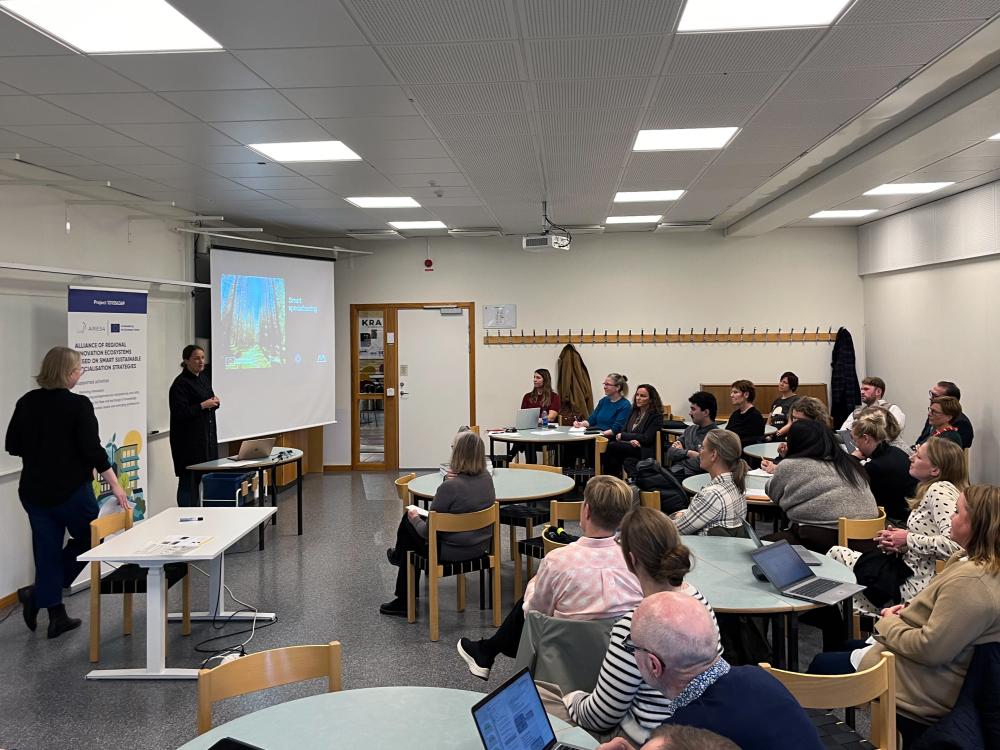The EU project ARIES4, has developed a guiding framework with proposals for areas and indicators of economic, environmental, and social sustainability. In October, the project results were presented to strategists in regional development at a seminar at Karlstad University, Sweden.
 How do regions work with sustainability, and how can the integration of sustainability be measured in regional development and strategies for smart specialization? This was the central theme at a meeting in the seminar series “In the Same Landscape” at Karlstad University on October 17, 2024. The event was organized by the university’s Centre for Research on Sustainable Societal Transformation (CRS).
How do regions work with sustainability, and how can the integration of sustainability be measured in regional development and strategies for smart specialization? This was the central theme at a meeting in the seminar series “In the Same Landscape” at Karlstad University on October 17, 2024. The event was organized by the university’s Centre for Research on Sustainable Societal Transformation (CRS).
Game Plan Offers Guidance
The seminar highlighted the part of the project focusing on measuring sustainability in regional development and smart specialization. Lisa Gärdt, sustainability coordinator at Glava Energy Center and participant in the ARIES4 project, was present to share insights.
– Which indicators should be chosen to measure sustainability in the regions' strategies for smart specialization? There isn’t a straightforward answer to that question or an exact set of indicators to choose from. Instead, we present a comprehensive game plan of potential areas and indicators for economic, environmental, and social sustainability. The idea is for the game plan to provide guidance and inspiration for regions and different societal sectors in monitoring sustainability, says Lisa Gärdt.
A Platform for Exchange Between Research and Practice
Smart specialization is the EU's strategy for regional competitiveness and innovation, encouraging each region to identify its key strengths and resources to excel in those areas. At the seminar, participants included professionals from Region Värmland and the County Administrative Board, as well as students. Lisa Gärdt found the obvious interest and engagement in the topic inspiring:
– It was great to see so many interested in the topic and the many interesting discussions that followed. It’s also exciting to see ongoing work in the region to monitor and follow up on smart specialization. I’m looking forward to the discussions that will arise with those involved in that work, she says.
Facilitating exchanges between researchers and practitioners is a key aim of the Centre for Research on Sustainable Societal Transformation, explains its director, Moa Tunström:
– At CRS, we aim to be a platform where research and practice—those working with these issues in society—can meet and exchange knowledge and experiences. This isn’t a purely academic event for researchers alone, nor is it a training session. It’s a meeting place, says Moa Tunström, CRS director and participant in ARIES4.
Access the report "Catalogue of Sustainability Indicators" on the ARIES4 website.






